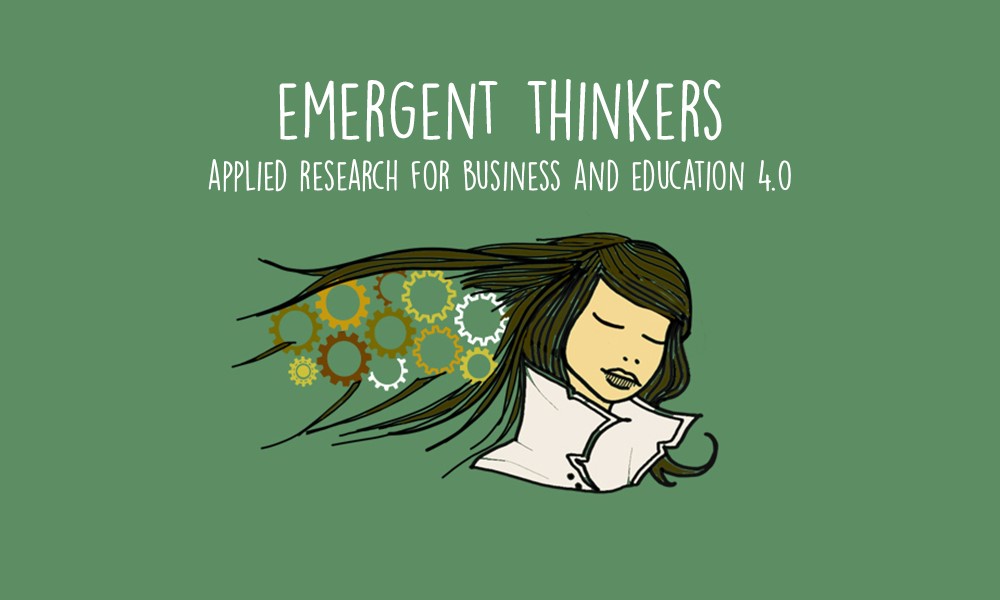
New academic year
It’s the beginning of a new academic year for thousands globally. Our media and networks highlight the beginning of a new journey for learners, kitted out afresh, young and mature; all gearing up excitedly for their year of challenge, with focus on the end prizes of progression and achievement. Yet, the energies and efforts of the educators themselves, who invest so heavily of themselves and their personal time, often in spades beyond their contracts, can be often overlooked.
As an educator, I can testify that education can be a challenging sector to work in; that it demands an ongoing investment of development, commitment and enthusiasm. It’s pressured, and sometimes quite bad for your health (Greenberg et al, 2016; Busby, 2019). Yet, in addition to its profound importance to society (Open Access Government, 2017), an educational role can be extremely emotionally rewarding (Daniels, 2015).
Anyone who suggests otherwise has neither stepped inside the classroom, or is naive to the physical and emotional demands and outputs of the educator, and those of their support system roles (Henshaw, 2019).
Teachers matter more to student achievement than any other aspect of schooling. Rand Corporation (2018)
Unfair press or ignorance?
It can, therefore, be terribly disappointing when the dedicated and the innovative are under-valued, isolated or demoralised whilst trying to do their best for their learners. This lack of empathy, care or respect, can even come from with the system itself, from the very stake-holders charged with responsibility for the sector’s management and growth. Not necessarily a direct onslaught on the practitioners who take responsibility for the ‘souls’ under their charge, but indirectly through poor funding or remuneration (Brown, 2019), failure to grasp the implication of increasing workload year-on-year (Webber, 2019) or unhelpful catty criticism. Without support, the educator’s own beliefs in their competence and professional purpose can be eroded (Day et al., 2011).
I get really angry when I hear some people suggest educators have too many holidays. In a profession where I have personally committed more evenings, weekends and holiday time than any other professional commercial role, I fail to understand this warrant. I certainly see no evidence. Instead, I see educators across all ages consciously and without complaint, routinely eat into precious family and/personal ‘unpaid’ time, for the sake of their learner journeys. Research by the National Foundation for Educational Research (2018) finds teachers work longer hours than police officers and nurses – even when the ‘school holidays are factored’ in. Educators in the tertiary sector, especially on the new contracts have even less entitlement, in-line with the commercial sector. Teaching continues through the summer for many universities. I know of many colleagues who work, mark or engage in research or professional development activities whilst on ‘annual leave’.
So let’s just take a minute to reflect and possibly accept how the dedicated many educators serve as the conduit to the hope of a brighter future, our futures.
21c Educators & Leadership Principles
As educators in the ‘system’, we should role model the change we want; respect and celebrate the good work amongst us. Take pride in the network we all belong to. Perhaps it’s time we commit to a new manifesto to the change we want for the profession we love, that we want to protect.
My start to developing a list of 21c Educator & Leadership Principles begins with an adaptation from Eichhol (2016) listing of skills of a 21st-century teacher. Yet mine is more stakeholder-centric, not solely learner-focused.
Our 21c Century Educators and leadership should
- Suspend Stereotypes: not just with learners, but within the wider educator profession
- Emphasize Empathy: again not, just with learners, but across our professional networks
- Champion Collaboration: connect students but also supporting the networking and bridging of all professionals
- Advance Adaptability – through their own practice, educators, the support staff and leadership acting as role models, not just to learners, but within and beyond the sector, to instill a hunger and preparedness for future VUCA challenges
- Value Voice – not just of every learner, but of their own and their fellow practitioners
- Promote Practice & “failing forward” – learners and educators both need the time and space to experiment, to grow, to rebound, to innovate and take risks.
- Follow Through With Feedback – to stimulate rethinking and intellectual growth, to accept that feedback isn’t just an academic endeavour
- Reinforce Reflection – Again, not resigned to academic activities, but to build into the culture of all educational establishments, a recognition that critical reflection has a place in all professional practice, including the various rungs of leadership. This is fundamental to a climate that encourages mutual support, creativity and innovation.
Celebrate the bridge builders
There are few that don’t like or draw on the odd quote or two. There is in fact some science behind it; a combo of “good wordsmithing, motivational psychology, and a measure of self-selection” (Fader,2015). So I borrow the wise words of the Greek writer, Nikos Kazantzakis.
‘True teachers are those who use themselves as bridges over which they invite their students … to cross; then, having facilitated their crossing, joyfully collapse, encouraging them to create their own.” ― Kazantzakis
That’s a lot of effort, energy and emotional investment. In fact, the bridging extends beyond the metaphor of facilitating learners ‘learning’, but extends to the links they make with the learner families, professional networks, future employers, global stakeholders, and even technology and beyond. A credible job indeed.
Proud to be a recurrent bridge-builder!
Photo by Fabio Comparelli
References
Brown, B. (2019) ‘What is the real cost of an underfunded education system?’, Noteworthy- the Journal Blog, 7th April 2019 [blog]. Available: https://blog.usejournal.com/what-is-the-real-cost-of-an-underfunded-education-system-88a5c19c9a01 [Accessed 16th September 2019].
Busby, E. (2019) ‘Teachers suffer more stress than other workers, study finds’, The Independent, 25th February 2019, [online]. Available: https://www.independent.co.uk/news/education/education-news/teachers-stress-professionals-mental-health-workload-national-foundation-educational-research-a8795691.html [5th September 2019].
Daniels, D. (2015) ‘Why Being A Teacher Is One Of The Hardest Yet Most Rewarding Careers: The best teachers are those who tell you were to look, but do not tell you what to see!’, Odyssey, 10th August 2015 [online]. Available: https://www.theodysseyonline.com/teacher-hardest-rewarding-careers [Accessed 15th September 2019].
Day, C., Edwards, A., Griffiths, A. & Gu, Q. (2011) ‘Beyond Survival Teachers and Resilience ‘ Nottingham University [online]. Available: https://www.nottingham.ac.uk/research/groups/crelm/documents/teachers-resilience/teachers-resilience.pdf [Accessed 15th September 2019].
Eichholz, T. (2016) ‘10 Signs You Really Are a 21st Century Teacher (And Might Not Know It)’ [blog]. Available: http://www.fusionyearbooks.com/blog/21st-century-teacher/ [Accessed 14th September 2019].
Fader, J. (2015) ‘The science behind why motivational quotes motivate you’ [blog]. Available: https://jonathanfader.com/the-science-behind-why-motivational-quotes-motivate-you/ [Accessed 14th September 2019].
Greenberg, M.T., Brown, , J.L & Abenavoli, R.N. (2016) ‘Teacher Stress and Health’ , 1st September 2016, The Pennsylvania State University [online]. Available:
https://www.rwjf.org/en/library/research/2016/07/teacher-stress-and-health.html [Accessed 15th September 2019].
Hensahw, C. (2019) ‘Support staff are overworked, underpaid and undervalued’ [online]. Available: https://www.tes.com/news/support-staff-are-overworked-underpaid-and-undervalued [Accessed 15th September 2019].
National Foundation for Educational Research (2018) ‘Diagnostic Analysis of the Effect of Retention and Turnover on the Teaching Workforce’ [online]. Available: https://www.nfer.ac.uk/for-schools/participate-in-research/diagnostic-analysis-of-the-effect-of-retention-and-turnover-on-the-teaching-workforce [Accessed 16th September 2019].
Open Access Government (2017) ‘The role of education and educational research for a sustainable future’, Open Access Government, 10th October 2017 [online]. Available at: https://www.openaccessgovernment.org/the-role-of-education-for-a-sustainable-future/38845/ [Accessed 15th September 2019].
Rand (2018) ‘Teachers Matter: Understanding Teachers’ Impact on Student Achievement’ [online]. Available: https://www.rand.org/education-and-labor/projects/measuring-teacher-effectiveness/teachers-matter.html [Accessed 15th September 2019].
Webber, A. (2019) ‘Teachers facing one of the highest global workload “burdens”, Personnel Today, 20th June 2019 [online]. Available: https://www.personneltoday.com/hr/teachers-workload-burdens-oecd/ [Accessed 16th September 2019].


The current systemic uber-focus on learners’ needs in HE overlooks the fact that this focus can only be delivered when educators’ own needs are also met. An exhausted and underpaid work force is unlikely to be able to invest the level of commitment that is required to fulfil the demands of our current educational ‘customers’, who often come with a considerable sense of entitlement. There are many bridges to build; across cultural, educational, and attitudinal divides. It is enormously frustrating when carefully built bridges are being undermined by systemic underfunding and lack of support. There needs to be a refocus on not just supporting learners, but educators as well, especially in higher education. No bridge can be built without resources!
LikeLiked by 1 person
Thank you for your contribution. I fully concur with your extension points. Bridges are only as strong as their foundations, however, temporary their purpose. Yes, educators themselves need investment too, on a number of levels.
LikeLike
I really like it when individuals get together and share ideas. Great site, keep it up!
LikeLike